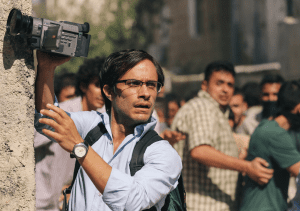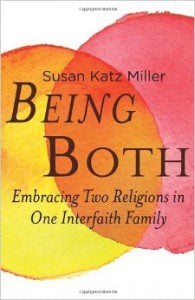 |
|
A closer look is warranted
|
A few years ago, the idea that a member of the Egyptian Muslim Brotherhood’s guidance council would have access to the New York Times’s op-ed page would have sounded odd, even absurd. Many in established government and policy circles would have found it equally unlikely that this Brotherhood representative would be extolling there the virtues of “granting … freedoms to all and the transition toward democracy.”
And yet last week Essam al-Errian did exactly that. His banal, bromidic platitudes about the compatibility of religion and politics would not be misplaced in a European Christian Democrat platform or the manifesto of either major American political party. Indeed, if al-Errian’s article is at all striking to the American ear, it is because he sounds a more conciliatory, apologetic note on religion in politics than many U.S. politicians. It is hard to imagine anyone being elected to the White House without publicly and loudly proclaiming their (Christian) faith, as Obama clearly knows. On the other side of the aisle, one need not look long among the newly anointed Republican presidential hopefuls to find an insistence that religion not only can, but must, play a role in national politics. The party’s policies on stem cell research, abortion, and sexuality discrimination say as much again. So much for the necessary secularity of liberal democracy.
At the same time, many of the same politicians also claim that toleration for religion in politics should not extend to groups like Egypt’s Muslim Brotherhood. And El-Errian’s opinion piece in the Times hardly heralds a new acceptance of the Muslim Brotherhood. Rather, it is the tribute the Establishment occasionally pays to recalcitrant reality. Lacking meaningful levers over political change in Egypt, America has been hemmed in by allies opposed to the anti-Mubarak democratic tide and by its own professed commitment to democracy. A lack of options at Foggy Bottom is unlikely to translate yet into an embrace of the Brotherhood.
Expect instead debate about the Brotherhood to ignite in coming years as Egypt stumbles from one military tyranny to who-knows-what. This makes two recently published books on the Brotherhood especially useful. Neither book focuses on the Egyptian brotherhood—look to Gilles Kepel’s excellent historical study to that end—but both provide useful starts.
Of the two, University of Cambridge scholar Alison Pargeter’s is more fluently written, more of a pleasure to read, and seemingly better sourced via both personal interviews and secondary sources. Harvard’s Lorenzo Vidino, by contrast, leans more heavily on security-agency sources and on documents generated through criminal investigations, especially the well-publicized trial of the Holy Land Foundation. Vidino’s documentary approach is superficially attractive. But, as any lawyer knows, looking at a documentary record produced by one side in a contentious litigation is not a reliable guide to underlying facts.
While Vidino focuses on the European and American manifestations of the Brotherhood, Pargeter paints a larger canvas, bringing in both Egypt and Syria. For general readers, her book has the virtue of wider relevance as well as accessibility. Vidino, as befits someone at Harvard’s Kennedy School of Government, ultimately seems to have in mind a policy audience, and speaks with Beltway cadences and values.
As both Vidino and Pargeter in different ways acknowledge, the Brotherhood is a Rorschach blot onto which observers can project anxieties and agendas. On the one hand, some will seize on El-Errian’s piece as evidence that the branch of political Islam represented by the Brotherhood is compatible with broadly liberal democracy (a position espoused by Robert Leiken and Steven Brooke some years ago in Foreign Affairs). On the other hand are those who will find in the El-Errian op-ed fresh evidence of the duplicity and perfidy of the Brotherhood, who hymn the virtues of democracy to Western audiences while promising more sinister results to its flocks.
The debate is intractable. The second camp wants the Muslim Brotherhood to prove a negative: that in its heart-of-hearts, it is not really a totalitarian movement and that its accommodation of democracy and human rights is not simply tactical. Just as Recep Tayyip Erdoğan’s AK party has not been able to shake anti-democratic suspicions despite Turkey’s relatively free 2007 elections, so the Brotherhood’s participation in the peaceful pro-democracy movement and its potential future role in electoral competition will not slake critics’ ire. We will continue to hear the argument the Egyptian military should continue a totalitarian regime characterized (as Tarek Osman notes in an excellent new book) by routine torture and economic emiseration so as to save Egyptian democracy from the Brotherhood. The irony of this paradoxical position will continue to go largely unremarked.
On the other hand, it pays not to be too naïve. To pick up on the AK party once more, recent policy changes in Turkey have raised real concerns about gender equality. People of good will can be genuinely uncertain and truly not know when and who to give a political movement the benefit of the doubt.
Neither Vidino nor Pargeter will settle the dispute. But their divergent perspectives converge on three points that should help the debate. Most importantly, both books illustrate the frequent changes of direction during the Brotherhood’s history. As Pargeter explains, the Brotherhood had a militant strand, Nizam al-Khass, even during founder Hassan al-Banna’s lifetime, even though al-Banna himself was quite pragmatic. Subsequent violent suppression and internal schisms yielded a highly variegated movement that has tacked pragmatically around events to order to attract and keep members. Like any organization competing for market share, both books suggest, the Brotherhood survives only because it adopts. Because it adapts, it speaks to different potential constituencies at different historical moments. In this regard it is no different from the American Republican or Democratic parties, which have also changed dramatically over time.
Second, both books argue that there is a loose ideological and personal set of transnational associations that is fair to call an international Brotherhood. Neither claims this organization is formal. Both emphasize its practical consequences. Combining this diffuse and disjointed organizational form with the Brotherhood’s pragmatic history suggests that the commonalities between national affiliates of the Brotherhood may well be less important than their differences. The French UOIF is not the same as Syrian Ihkwan, and it is not helpful to say it is.
Third, the Rorschach blot approach to the Brotherhood should give way to a more nuanced official approach that looks at each specific organization on its merit. As even the more pro-security and skeptical Vidino suggests, Western governments will often find it in their interest to engage with variants on the Brotherhood. Such engagement may generate a virtue circle of internal change within organizations that governments ultimately seek.
Recent events in Egypt, beyond the immediate hope and admiration they inspire, should be a catalyst for reconsidering this important social and political movement. Vidino and Pargeter have both contributed meaningfully to that project. It must be hoped that cooler heads like theirs and more cautious case-by-case treatment will build on that start to ensure a more prudent course than we have seen before.
Alison Pargeter, The Muslim Brotherhood: The Burden of Tradition, Saqi Books 2010
Lorenzo Vidino, The New Muslim Brotherhood in the West, Columbia University Press, 2010.
Aziz Huq is an assistant professor of law at the University of Chicago Law School and a regular contributor to altmuslim.com.











